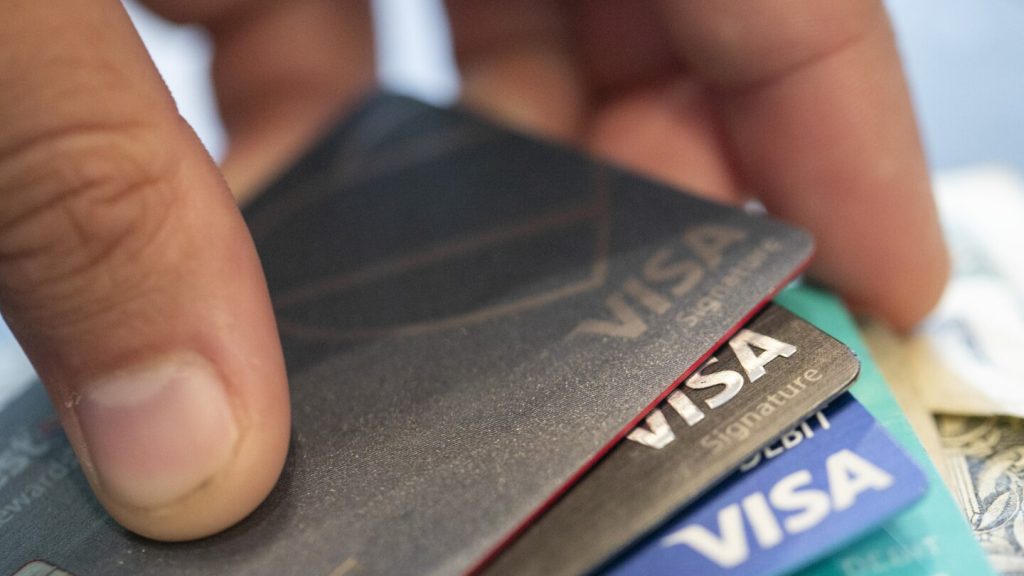Consumers are facing increasing challenges in paying off their credit card bills, with severe delinquencies reaching a 14-year high of 10.7% in the first quarter, according to the Federal Reserve Bank of New York. This jump from 8.2% a year ago is causing concerns about the impact on consumer spending, as total credit card debt has risen to $1.12 trillion. Particularly affected are those in their 20s and 30s, who typically have lower earnings power and savings.
The Federal Reserve’s decision to raise interest rates to combat high inflation has made borrowing more expensive for consumers, including on mortgages, auto loans, and credit cards. As consumer spending is a key driver of economic growth, the struggles with credit card payments raise red flags about the health of the economy. The labor market will play a crucial role in determining whether debt stress escalates further, with job and wage growth currently helping to offset the effects of inflation.
While Wall Street remains optimistic about earnings growth, retail spending unexpectedly stalled in April, indicating consumer fatigue. Large retailers like Walmart and Starbucks have reported changes in consumer behavior, with more focus on necessities and less on discretionary items. The Federal Reserve is facing challenges in managing stubbornly high inflation while avoiding a recession, as high inflation rates, expensive borrowing costs, and a slowing economy create uncertainty.
Although credit card debt represents a small portion of overall consumer debt, the increase in delinquencies is outpacing income growth. Many consumers may be barely keeping up with minimum payments but are financially stressed and unable to pay off their full balances. A worsening economy could push these consumers into severe delinquency, leading to further concerns about financial instability and potential impacts on consumer spending.
Analysts are divided on the outlook for consumer spending, with some expecting resilience but warning about the sensitivity of lower-income consumers to adverse labor market shocks. Overall, the combination of high credit card delinquencies, rising inflation, and a challenging economic environment presents a complex situation for policymakers and consumers alike. The Federal Reserve must navigate these challenges to ensure economic stability while addressing the needs of struggling consumers.


